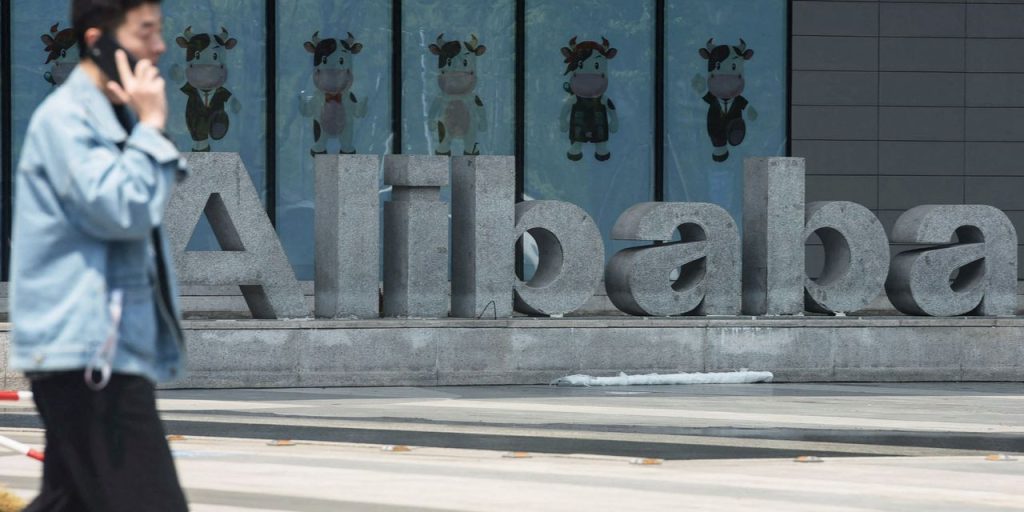China’s top e-commerce giants both claim their “Singles Day” sales were higher this year than in 2022, but analysts believe the holiday’s fast-paced growth has now started to slow in another sign of an overall struggle for the country’s economy.
China’s top two online retailers — Alibaba Group Holding
BABA,
9988,
and JD.com Inc.
JD,
9618,
— both said sales were up compared to last year’s Nov. 11 shopping holiday, during which the country’s e-commerce companies offer major discounts on millions of products in what has been likened to a huge version of Cyber Monday.
But both firms also held back from giving full data on the sales they achieved during the 2023 Double 11 campaign for a second straight year. Last year marked the first time details were withheld in the shopping holiday’s 15-year history.
The event, also known as Double 11, which first started out as a “Bachelor’s Day” for men to celebrate being single, is now better known for frenzied shopping sprees that start at the end of October and finish in mid November. Ironically, Singles’ Day celebrations have also come to be associated with couples too.
Chinese retail analyst Syntun estimated this year’s Singles’ Day sales increased just 2.08% year-on-year, to ¥1.14 trillion ($156 billion), in what would be a significant slowdown compared to the double-digit sales growth achieved each year from 2009 until 2020.
In a more positive signal, China’s State Post Bureau, the government agency that oversees the country’s postal service, said 5.26 billion packages were delivered across the entirety of the 11-day long shopping holiday, marking a 23.22% increase compared to 2022.
This year’s holiday was, however, marked by a focus on low prices that saw all of China’s top e-commerce platforms put affordability at the center, amid fierce competition between retailers, in a sign that Chinese consumers are seeking to cut back on spending.
A survey of 3,000 Singles’ Day participants, carried out by Bain & Co, also showed just 23% of Chinese consumers planned to spend more in 2023 than the year before, compared to 24% in 2022 and 51% in 2021, in a sign that enthusiasm about the shopping spree is declining.
“The Double 11 event has been held for fifteen years now, and consumers expressed a growing disinterest in this type of consumer event, ” Alpha Value analyst Jie Zhang said.
The rise of new, more price-focused players, including that of PDD Holding’s
PDD,
Pinduoduo, has aimed to capture market share in China’s tier 3 and 4 cities by letting consumers band together to bulk buy products in order to lower their costs. That has also heightened competition.
Bain & Co’s survey showed consumers in China’s lower tier cities were more cost-conscious than those in the country’s wealthier Tier 1 and 2 cities, such as Beijing and Shanghai, particularly among younger people.
The slower growth in Singles’ Day sales comes as the shopping holiday’s popularity seems to have plateaued in recent years, with Syntun data showing sales increased by just 2.9% in 2022. Alibaba, meanwhile, saw its Singles Day sales increase 8.5% in 2021 and 85% in 2020.
That the holiday may be losing its magic may be taken as more evidence of a China slowdown, in the wake of COVID-19 and against the backdrop of a worsening crisis in the property market that threatens to leak out into the wider economy.
“The Chinese macroeconomic headwinds that are making consumers more value-conscious have been well publicized, including a slowdown in the country’s previously strong GDP growth, relative weakness in consumer confidence, and concerns over the property market,” Bain & Co said in reference to its survey.
“Those macro pressures, which prevail despite China’s full reopening from Covid restrictions earlier this year, are reflected in the findings of our annual pre-Singles Day survey of 3,000 Chinese shoppers.”
Read the full article here















